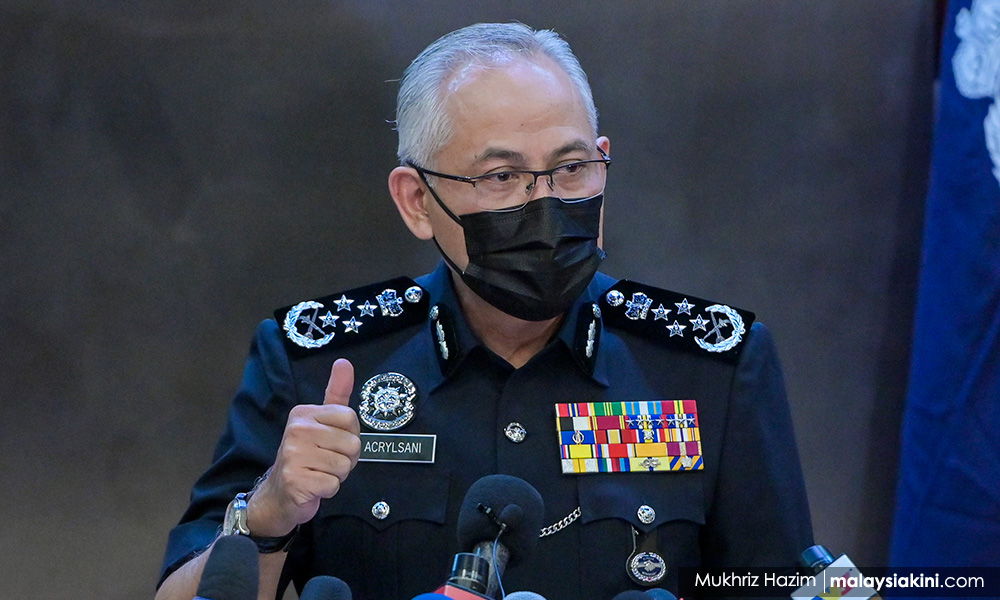There used to be an unofficial house rule in my parents’ house - no shorts, no sleeveless, no exposing cleavages and curves, and no revealing too much skin. When someone breaks the dress code, the officer in charge (my mother) would use her power to enforce the rule.
Sometimes she’d give a direct comment about everything that was wrong with the attire. Sometimes she’d offer to supply other ‘appropriate’ attires to select from. And sometimes, clothes that do not fit the dress code magically disappear from the laundry (I suspect she burns them).
Adhering to my mum’s dress code was a pain in the butt, yet it became something my daughter and I followed as a sign of respect. After all, it was her house.
As a person with a traditional upbringing and a conventional mindset, we understood that my mom had a different perspective about attires and their function.
For us, choosing attire was more about comfort and practicality. My mom on the other hand believes that our attire displays who we are as a person. If our attire looked very different from hers, it somewhat implied that we did not belong together, that we did not have a shared culture, beliefs and ultimately a unified front.
For many years, my daughter and I followed my mum’s dress code every time we visited her. We understood why she insisted on the dress code - she just wanted us to look, well, similar to her. And that was actually quite sweet.
Breaking the dress code
A couple of years ago, our family was invited to a wedding reception - it came with a dress code. Guests were requested to wear suitable attires in any shade of green. My mum was not happy with the dress code - green wasn’t her favourite colour.
I was pretty surprised when my mum decided to attend the reception wearing a brown baju kurung and a beige hijab. She claimed that she can only wear something that she was comfortable with.
My mum breaking the dress code of the wedding reception became a learning curve for the rest of us. If she could break a dress code and give importance to her own comfort, so can we.
Slowly, I began ignoring mum’s dress code and started wearing clothes of my own liking. Whenever my mum showed her disapproval, I’d jokingly tell her how she should enjoy my company instead of criticising my sense of fashion.
These days, my mum is slowly accepting that we are who we are, and our attire does not change our identity or how we feel about her.
I love this about my family, I love how flexible we are as a unit. At one time, we changed our ways to please my mum, now she is learning to alter her traditional way of thinking in order to give us some space to be ourselves.
Dress code at public offices
Public offices in our country have a dress code too. No shorts, no sleeveless, no skirts above the knee and the list goes on. At a glance, it does sound very much like my mum’s dress code.

In my honest opinion, I think dress codes in public offices were initially set up for the same reason my mum set up her own dress code - to make sure everyone is appropriately dressed, resembling the ‘host’. The idea was to create a unit or a society that has similar values.
In Malaysia, the Malays are the majority. Likewise, our public offices are also almost entirely staffed by Malays - about 83 percent to be exact. We all know the Malays have a very deep sense of cultural and religious beliefs which in fact decides the way they dress.
Perhaps the dress code of public offices which very much resemble the regular attire of the Malay community was formulated to comfort the majority. Perhaps having everyone cover their shoulders, and knees and not show too much skin, is akin to showing ‘respect’ to the majority.
Now, there is nothing wrong with creating an environment filled with respect. In a colourful country like Malaysia, respect is the backbone of everything we do. We dress up appropriately when we attend Hari Raya open house or kenduri at our Malay neighbour’s house because we want to show them respect.
However, what many people do not realise is the fact that respect goes both ways. Having security guards or officers forcing people who fail to comply with the dress code to wrap themselves in a sarong or towel or else leave the premise, does not sound respectful at all. Instead, it is rude, thoughtless, arrogant and uncivil.
Public offices belong to us
Following an incident where a woman was denied entry to a police station for not adhering to the dress code, Inspector-General of Police Acryl Sani Abdullah Sani recently reminded the people that public offices are places to do business in an orderly and polite manner as well as uphold morality.

The IGP’s statement is absolutely correct, except he should be referring to the public servants and not the people.
Yes, public offices which are set up to serve the public must be managed in an orderly and professional manner while public servants who work at public offices must adhere to the dress code and uphold morality in their behaviour.
Public servants dealing with people must learn to act in the utmost respectful manner, be courteous, and helpful, and perhaps smile a little more.
However, when it comes to the people, we must be served as we are. Irrespective of our attire - be it in shorts, mini skirt or slippers - and irrespective of our mood, our mannerism or the language we speak, we must be served respectfully. After all, public offices are set up to serve us, the public.
Frankly, forcing people to follow a dress code when entering a premise that technically belongs to us, sounds rather ridiculous.
Furthermore, no one enters a public office to hang out. We are forced to go to public offices because there is a need for them. Trust me, if given a choice, we’d rather settle all our errands online without having to drag ourselves over.
The need to change
Perhaps it is time for the government to revisit the dress code policy in public offices - do we really need them?
Perhaps it is time to shift the focus from the ordinary Malaysians and our choices of attire and start observing our 1.2 million public servants working in public offices and their quality of services. Are the services even up to par?
Many things in our country have gone through changes since our independence in 1957. There is no shame whatsoever in improving, changing or replacing policies, systems and laws that are inconsistent, ignored or outdated, as long as it benefits the people. In fact, that is how we progress as a nation.
It is time we move forward and get rid of the unnecessary, ridiculous public office dress codes. After all, our values and morality as Malaysians and as humans do not come from our attire. - Mkini
FA ABDUL is a multi-award-winning playwright and director in the local performing arts scene, a published author, television scriptwriter, media trainer and mother. Her ultimate mission in life is to live out of a small suitcase.
The views expressed here are those of the author/contributor and do not necessarily represent the views of MMKtT.




No comments:
Post a Comment
Note: Only a member of this blog may post a comment.